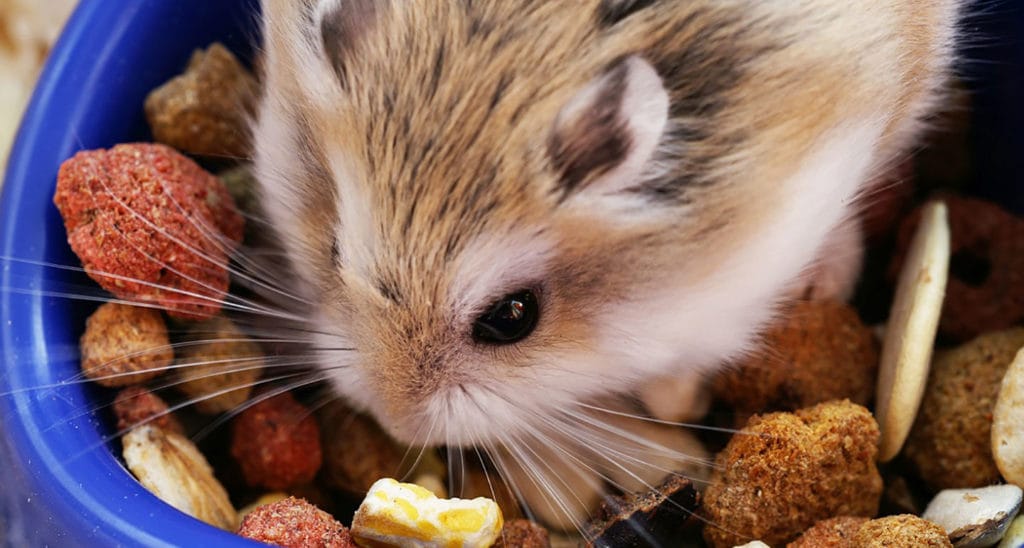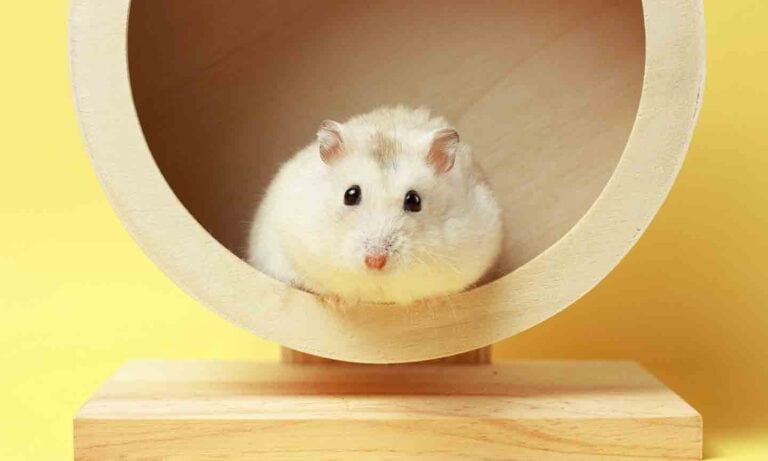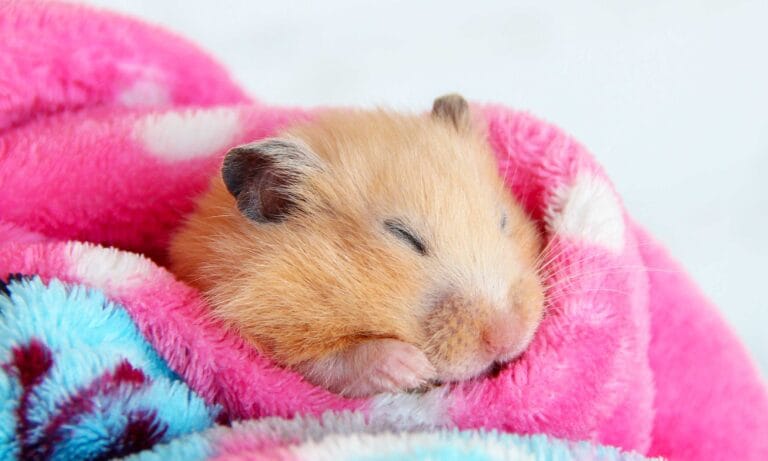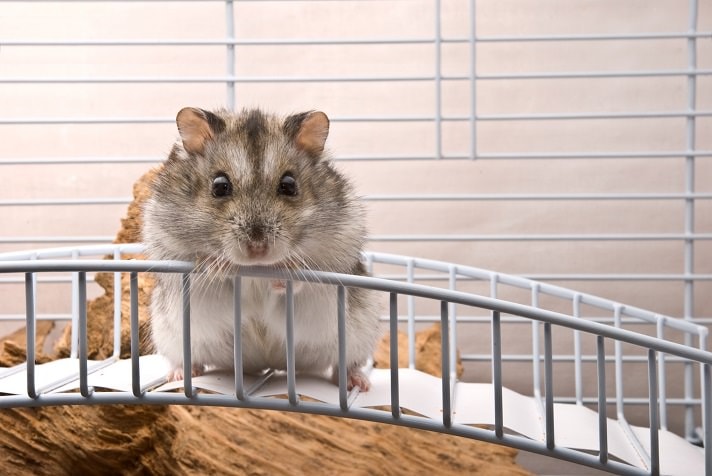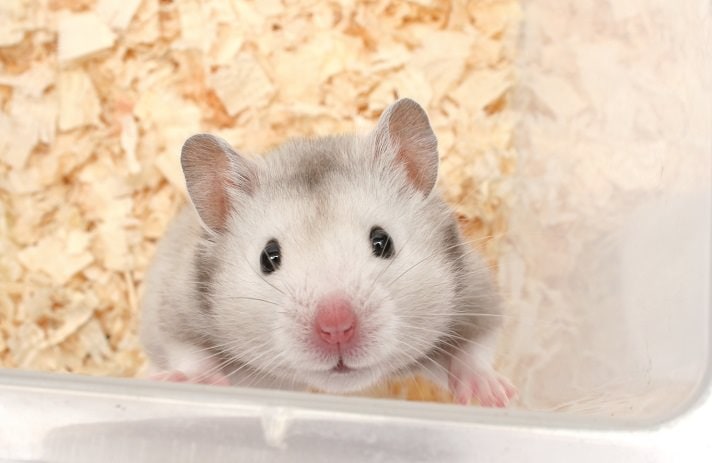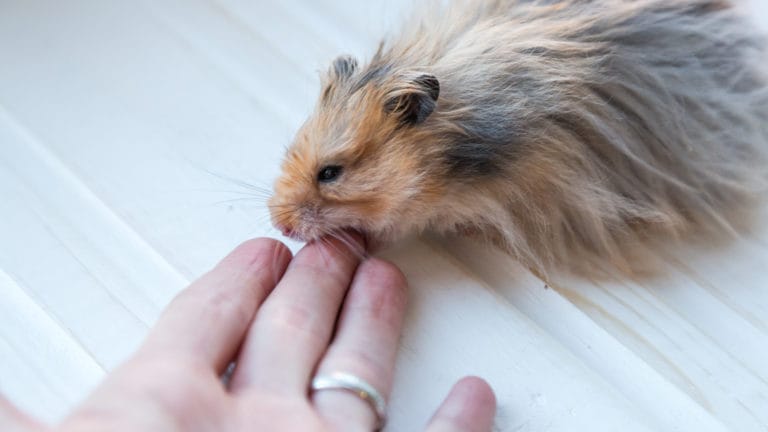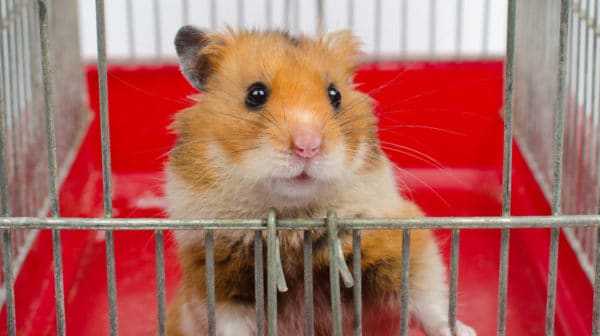Like all animals, hamsters benefit from a range of vitamins in their diets. Here are some important vitamins for your hamster’s needs.
- Vitamin A is useful for nursing hamsters and important in small amounts for growth. Lack of vitamin A has been shown to cause slow development in baby hamsters. Green vegetables and carrots are good sources of vitamin A. Remember the “too much” rule here. Although natural vitamin A is good for baby hamsters, you can do a hamster harm — especially a pregnant female — by giving too much vitamin A. High doses of vitamin A for a pregnant female hamster can cause birth defects; adult hamsters may suffer a weakened skeletal system and liver damage if they consume too much vitamin A.
- Vitamin B can counter the effects of stress. Meats, which are a good source of protein for breeding hamsters, contain vitamin B. Feed your hamster unfried, unseasoned meat that is boiled or cooked without breading or too much oil. Eating too much vitamin B can cause a range of health problems for your hamster, including diarrhea, nausea, cramps and irritability.
- Vitamin C is crucial for hamsters and useful to promote healing. Not providing your hamster with enough vitamin C may cause a painful disease called scurvy. Symptoms of scurvy include fur loss, lethargy, squealing when touched, weight loss, and hunched and wobbly walking. Broccoli and most fruit provide vitamin C.
- Vitamin D can prevent a bone disorder known as rickets. Cod liver oil or green veggies contain vitamin D. Too much vitamin D can cause diarrhea and weight loss in hamsters.
- Vitamin E is good for the hamster’s skin and fur. Some vegetables, such as spinach and broccoli, contain vitamin E. Sunflower seeds are also a good source of vitamin E, but should be fed to your hamster sparingly (a few seeds per day). Too much vitamin E can cause diarrhea and weight loss.
- Vitamin K is suggested as a requirement for good reproductive health in hamsters. Carrots, spinach, peas, broccoli, chard and cereals such as wheat germ, Farina and Cream of Wheat are good sources of vitamin K. Oatmeal is another good source of this vitamin, but most hamsters won’t eat it.
- Zinc and copper in small amounts help a hamster break down proteins. Turkey, beef, yogurt, lentils and most seeds contain zinc and copper. These minerals are good for hamsters that are breeding.
Excerpt from the Popular Critters Series magabook Hamsters with permission from its publisher, Lumina Media.
Share:
